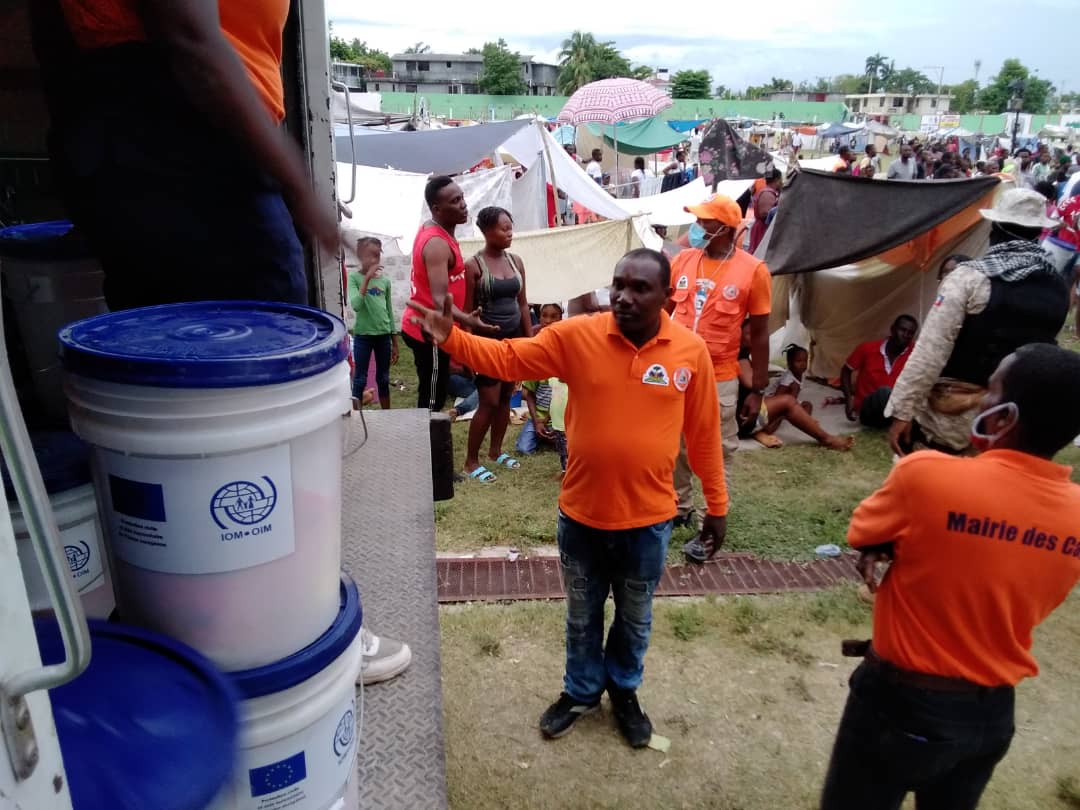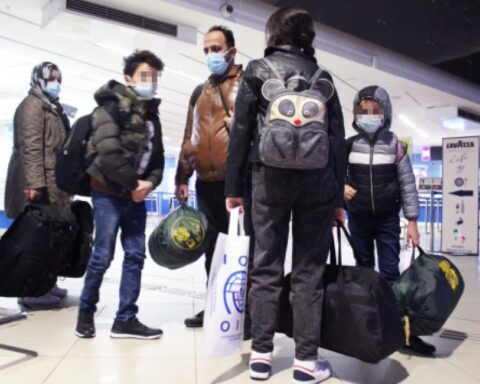Port Au Prince – According to official figures, the 7.2-magnitude earthquake has already left 2,207 dead, more than 12,000 injured, nearly 53,000 buildings collapsed, and another 77,000 severely damaged.
“For the first months alone, we need at least USD 15 million to provide housing support, help affected Haitians return to their homes, and ensure they have essential means for subsistence,” said Federica Cecchet, IOM’s Deputy Head of Mission in Haiti.
Just 48 hours after the earthquake on 14 August, IOM set up bases in each of the most affected areas and now has additional hubs in Jeremie (Grand’Anse), Les Cayes (Sud) and Miragoane (Nippes). It is using satellite imagery to analyse damage assessments and thousands of plastic sheets, hygiene kits, blankets, collapsible jerry cans, and kitchen sets have already been distributed to help maintain minimum living conditions for affected families. IOM also has a team of engineers supporting structural assessment work in the affected municipalities in southern Haiti.
Cecchet said information management was also a priority and the appeal funds would generate timely and accurate information on the displaced population in the Southern departments of Sud, Grand’Anse, and Nippes.
IOM has deployed its Displacement Tracking Matrix (DTM) team to track the movement and needs of the affected populations and map conditions in shelters. This information will facilitate humanitarian programming, as well as prioritize the tasks of a range of humanitarian partners, including beneficiary selection, logistics planning, and the identification of the specific needs of those in particularly vulnerable situations.
IOM also aims to provide mental health care and psychosocial support for families, with special consideration for women and girls, through on-site psychologists. IOM’s psychologists are trained in Protection from Sexual Exploitation and Abuse (PSEA) and provide targeted support to those affected by the earthquake. Those unable to receive or directly access this assistance can also use IOM’s dedicated hotline. The 840 toll-free number was created to receive psychosocial support, obtain information and register complaints, among others.
Insecurity has hindered aid delivery to some communities and IOM plans to implement locally driven, sustainable initiatives to ensure help reaches the most needy.
“IOM’s community stabilization approach stresses flexibility and responsiveness to evolving needs,” says Cecchet. “Cash for work has also proved effective during a crisis, laying the foundation for durable solutions and contributing to community stabilization.”
IOM’s Global Crisis Response Platform provides an overview of IOM’s plans and funding requirements to respond to the evolving needs and aspirations of those impacted by, or at risk of, crisis and displacement in 2021 and beyond. The Platform is regularly updated as crises evolve, and new situations emerge.






